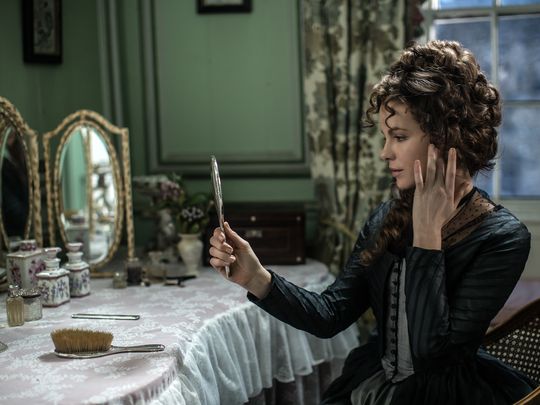Director: Whit Stillman
Starring: Kate Beckinsale, Chloe Sevigny & Xavier Samuel
Whit Stillman and Jane Austen are both famous for portrayals of young women in specific, intricate societies of comfort. Though Whitman errs to the more ridiculous and hip, and Austen to the prideful outsider, both study what occurs when a person does not follow the careful laws of those societies.
Lady Susan, the anti-heroine of Austen’s novella of the same name and of Stillman’s film Love & Friendship, is known as a ‘coquette’. She is a young widow with a daughter of marriageable age (that is, 16 years old). As everyone seems to know, she is an incorrigible flirt, and much worse besides. The film has a large cast, and though some of the other actors were very fun to watch (such as Morfydd Clark, who plays Lady Susan’s daughter Frederica Vernon, and Tom Bennett, who plays Sir James Martin, Frederica’s “unintended”), Kate Beckinsale’s Lady Susan is cleverer, sharper, and livelier (to use an Austenian word) than them all. Many of the smaller roles are delivered very well. Connor Macneill as the Young Curate is very good in explaining the Fifth Commandment, and Jemma Redgrave and James Fleet as Lady and Sir De Courcy have deft and amusing scenes together.
Disappointingly, the film refrains from developing the vitriolic yet sympathetic relationship that is given much space in the novella between Lady Susan and Mrs. Catherine Vernon (played in the film by Emma Greenwell). The novella, which is in epistolary form, allows a lot of space to the voice of Mrs. Vernon, Lady Susan’s sister-in-law. Mrs. Vernon feels she knows Lady Susan’s true character (which she largely does, as the reader is privileged with both of their confidences), and is both flummoxed and enraged that the men around her cannot also perceive it. Stillman waves his hand in this direction, but only shallowly.
Love & Friendship does do a very eloquent job of depicting the social circumstances that created impossible situations for upper-class women without money. The film convincingly argues that Lady Susan connives partly out of necessity, while not defending her poison. The script, which was rewritten from the original by Stillman, hurtles along. Much of the dialogue comes from the novella, and as it is written in letters, the language is much more calculated than would be natural; especially in the case of Lady Susan, who is loaded with the majority of the dialogue. The art direction is wonderful – most notably demonstrating the beauty of ruffles on a man’s cloak, and of pea and grass green livery – and the editing provides the grammar of good comic timing.
I do think this film is very much worth seeing, if just to see Whitman dispel myths of Austen as “fuddy duddy bullshit” (quote attributed to a woman on Facebook). Austen was brilliant, a pioneer in writing women’s lives, and remains fucking hilarious and relatable. Stillman highlights these qualities, and more than anything else, has created a film that serves as vehicle for Austen’s greatness.
Words by Pema Monaghan

